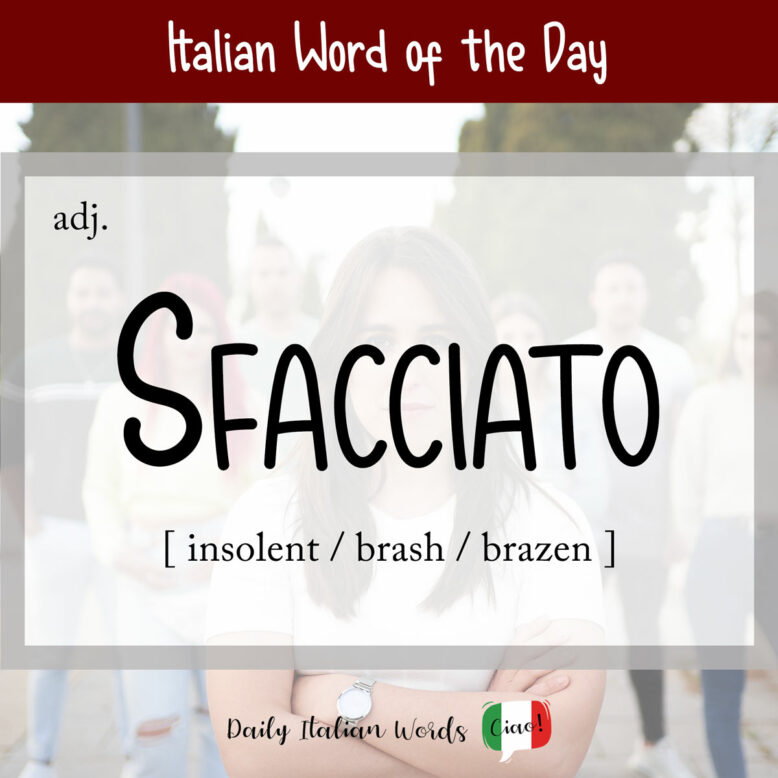If an individual displays rude and arrogant behaviour, demonstrating a total lack of respect, you could characterise them as sfacciato in Italian, which translates to insolent, brash, brazen or impudent in English.
sfacciato

The term sfacciato originates from the root faccia (face), employed figuratively to convey notions of honor or respect. The s- prefix, in this context, imparts the opposite, often negative, meaning to the word (i.e. no face = no respect).
When sfacciato ends in -o, it describes a masculine, singular noun. You can change the ending to -a to make it feminine, or -i and -e to create their respective plurals.
- l’uomo sfacciato = the insolent man
- la donna sfacciata = the insolent woman
- gli uomini sfacciati = the insolent men
- le donne sfacciate = the insolent women
Questo cameriere è veramente sfacciato! Andiamo a casa!
This waiter is truly insolent. Let’s go home!

When used as a noun, it means impudent person or brazen-faced person.
Sei proprio uno sfacciato, Mario!
You are such an impudent person, Mario!
Like many words, sfacciato also carries a figurative meaning. When applied to objects, it denotes something that surpasses the bounds of good taste and decency, akin to the English adjectives gaudy or showy.
I suoi capelli sono di un rosso sfacciato.
Her hair is a gaudy shade of red.

It can also mean outrageous or unabashed as in:
- una fortuna sfacciata = an outrageous fortune
- un lusso sfacciato = an unabashed luxury
Two colloquial synonyms for sfacciato are faccia tosta and faccia di bronzo. The adjective tosto means hard, tough or determined, while bronzo is quite simply, bronze. Avere la faccia tosta / di bronza can be translates as “to have the nerve / to dare.”
Hai la faccia tosta di chiedere un favore dopo tutto quello che hai fatto?
You have the nerve to ask for a favour after everything you’ve done?
Heather Broster is a graduate with honours in linguistics from the University of Western Ontario. She is an aspiring polyglot, proficient in English and Italian, as well as Japanese, Welsh, and French to varying degrees of fluency. Originally from Toronto, Heather has resided in various countries, notably Italy for a period of six years. Her primary focus lies in the fields of language acquisition, education, and bilingual instruction.


